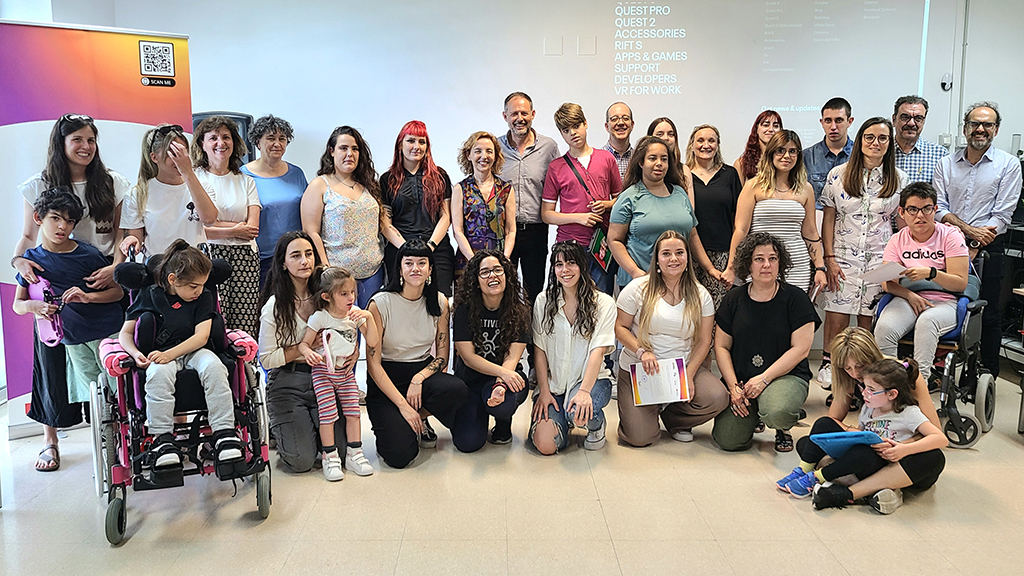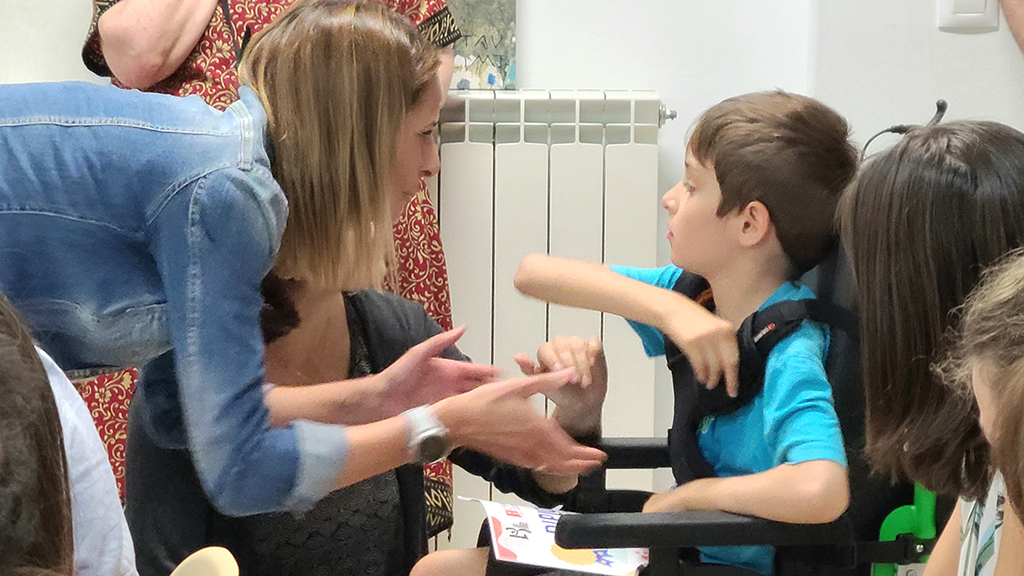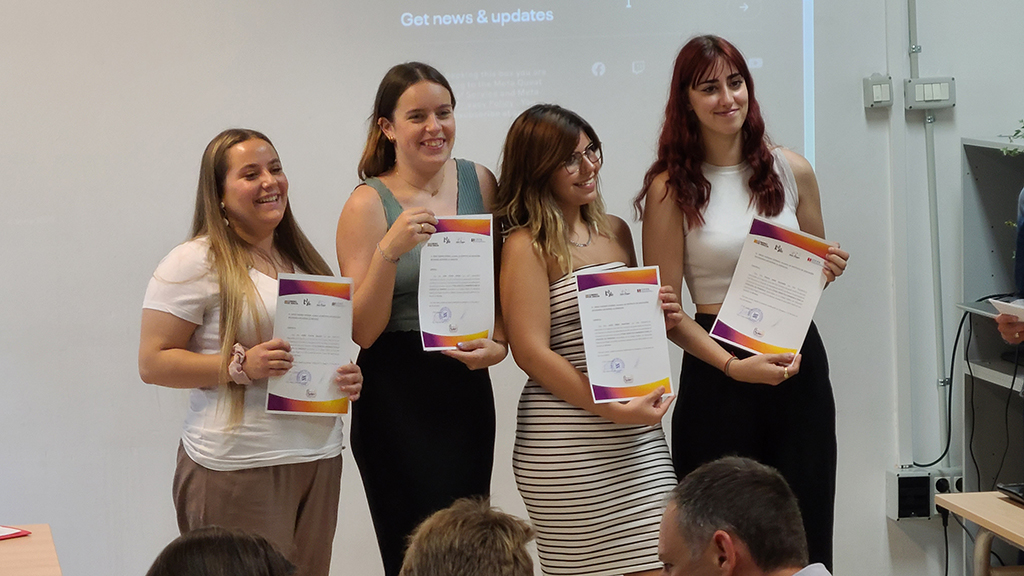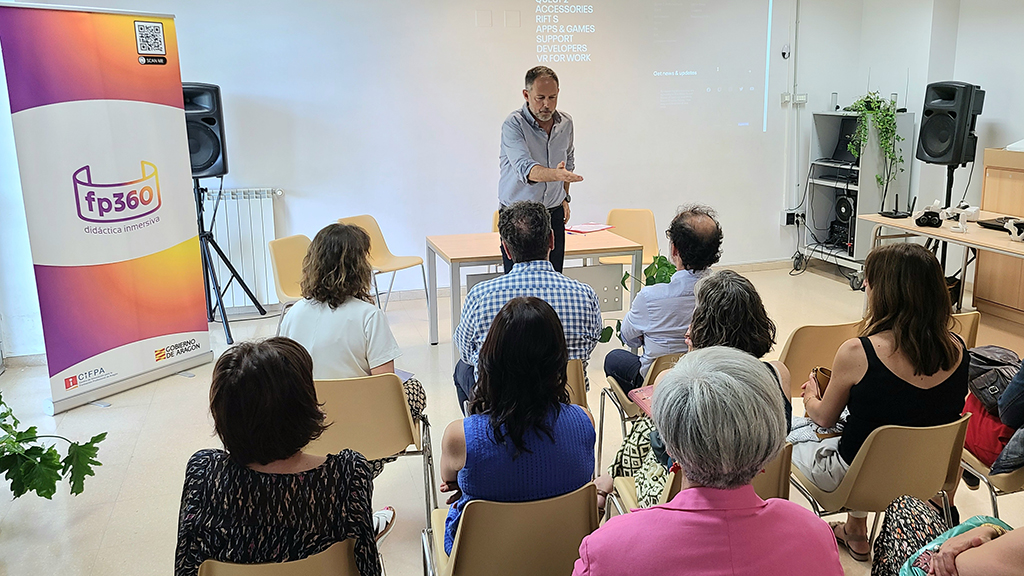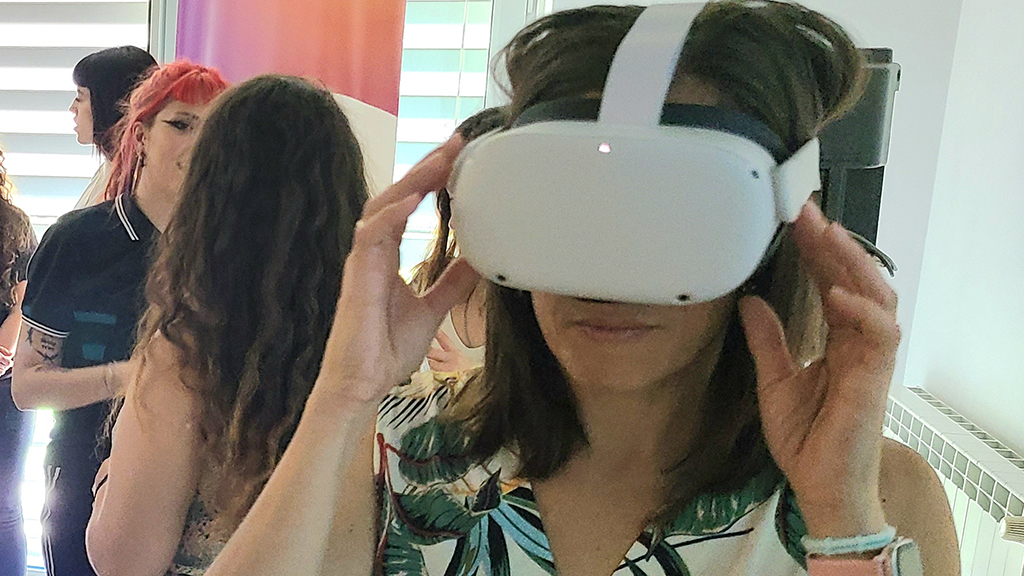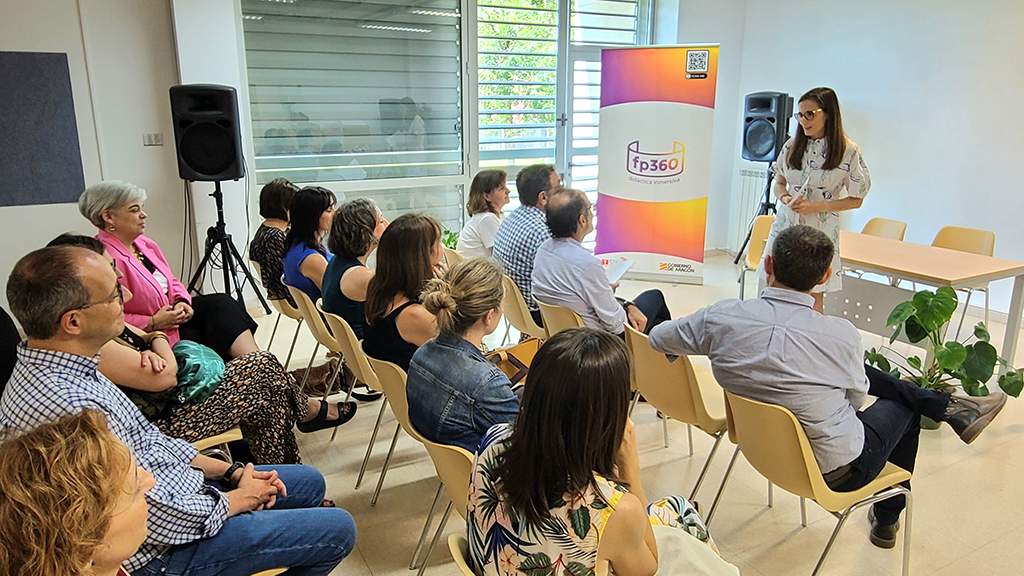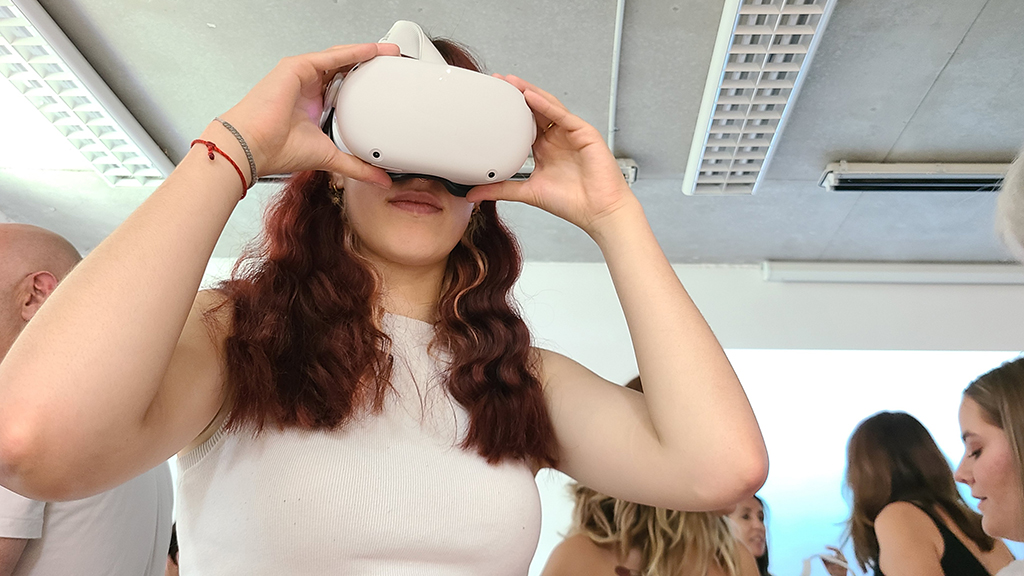
20 Jun FP360 Immersive didactics, learning resources for Vocational Training
The end of the course is coming and with it, even if it is with a small pause, the closure of some of the initiatives of the Innovation Center for Vocational Training of Aragon (CIFPA). Closure and presentation because the Special Education Center Jean Piaget has been the stage to test the VR glasses with 360 didactic videos, the result of the innovation project FP360 Immersive Didactics.
The objective of this project is to create didactic resources in 360º video format to achieve immersive teaching-learning experiences. These are processes that take place in spaces that are not normally accessible to students or teachers of VET.
Active support
In this first edition, students from the Luis Buñuel Secondary School (IES Luis Buñuel), together with students from the Transition to Adult Life Classroom and the Infant School of CEE Jean Piaget, have participated in this innovative initiative. In this center of the Aragonese capital, such basic processes have been recorded, but at the same time so important for people with dependency, such as: preparing breakfast and setting the table, communication through different technologies and psychomotor skills. Always based on the methodology known as Active Support with its five levels of work.
The students and teachers of the cycle, together with Jean Piaget's professionals, determined the processes to be worked on. The FP students, after an initial training, made the scripts. This process, included in the pre-production phase, was already a very valuable learning experience for them. After the scriptwriting, location and rehearsal period, the day of recording arrived. The company Ábaco Digital was hired for the recording and editing. The protagonists of the videos are the special education and vocational training students.
Virtual Reality Glasses
Thanks to these videos incorporated into virtual reality (VR) glasses, students are immersed in an environment in which they witness the development of an activity or process. This methodology and virtual reality technology guarantee equal opportunities for vocational training students because, wherever they are, they can "travel" thanks to the goggles to work environments that are usually not very accessible. This edition the process focuses on the person, Active Support model. In the future, processes developed in dangerous or inaccessible environments such as high-voltage transformers, wind turbines or logistics factories, among others, will be worked on.
360° video vs. virtual reality video
From an economic and educational point of view, the initiative is of interest for VET since all the resources created will be shared with the centers through the Ateca Classroom. The 360º video was chosen over virtual reality because it is a less costly process and allows student participation in the preparation phase of materials and scripts. Virtual reality videos require greater specialization and more budget, while 360 videos are recorded in a real environment and with real people.
The project is positive for VET, but also for the rest of those involved: companies, institutions and educational entities. At CEE Jean Piaget, thanks to this project, they have learned about a new learning and action tool and their goal is to continue developing immersive materials that will be included in their glasses so that the center's employees know how to act in specific situations.
Digital Competence in Education (DCE)
The incorporation of immersive technologies in VET promotes the increase of teachers' Digital Teaching Competence (DTC). For students it means having a modern and practical technological tool that helps them in the acquisition of technical and social skills. This project allows teachers and students to create immersive materials to be integrated into a library or repository and to be used in the Ateca Classrooms or, in general, in VET classrooms.
These 360 videos are provided to all Ateca classrooms in the Aragonese Community so that they can be used in the VR glasses that are compatible with these 360 videos. They will also be provided to special education centers. In the case of a center of FP or special education does not have these glasses CIFPA makes available to all its Ateca Classroom and VR glasses with which it has.
This project involves developing collaborative processes in which everyone involved has a responsibility. The videos made have been possible thanks to the work of students and teachers of IES Luis Buñuel and CEE Jean Piaget with the intervention of the company Ábaco Digital. In the future we want the students of Image and Sound to collaborate with this initiative and be in charge of recording and editing. In any case, specific training in 360 video is already being designed so that all VET teachers in Aragon are able to produce their own immersive videos. In this way, teachers will acquire new digital skills and transmit this knowledge to their students.
FP360 becomes a collaborative repository managed by CIFPA to ensure that all schools can access and make use of the resources. The videos will include processes carried out in the company, in some cases focused on inaccessible machinery, due to its cost, for an educational center or actions that can be dangerous.
The centers and the company that participated in this first edition of the project were:
IES Luis Buñuel (https://ieslbuza.es/).
CEE Jean Piaget (http://piagetenses.blogspot.com/).
Company Ábaco digital (https://www.abaco-digital.es/web/es/).
Centro de Innovación para la Formación Profesional de Aragón (CIFPA) (https://cifpa.aragon.es/).
In the training area, the following were present:
The company OROI (https://oroi.info/)
Students and faculty of the Specialization Course in Videogame Development and Virtual Reality.


